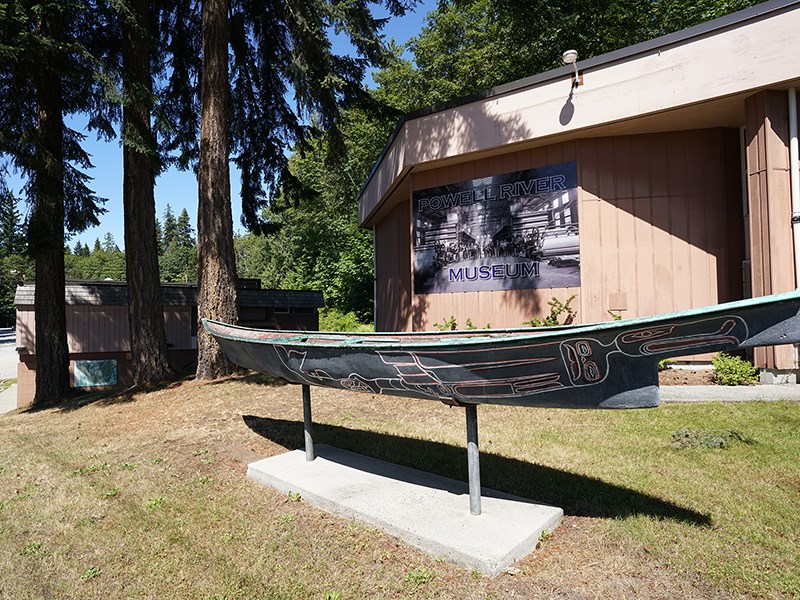Powell River Historical Museum and Archives will be considering an adjustment to its name.
In a media release, the museum stated that it is committed to improving relationships in the spirit of reconciliation, and extended its appreciation for the opportunity to live and learn in this territory.
“Before we begin the discussion of a future name adjustment, first, we acknowledge that the Powell River Historical Museum and Archives is located on the traditional territory of the Tla’amin Nation,” the release stated. “To explain why our name is currently being discussed, we must first talk about the role of museums in communities, and in the creation of national narratives."
The museum board and staff recognize and acknowledge that museums, across the country, witnessed and contributed to the colonial and erasure practices committed against First Nation, Metis and Inuit communities, according to the release.
“In their very origins as cabinets of curiosities, museums are largely a result of colonialism. Europeans in their global travels bought, stole and were gifted various relics from cultures all over the world, which they brought back to museums in their home country.
“Today, museums continue to host and collect items of cultural and ceremonial significance, and interpret history and stories that were not ours to tell or have omitted perspectives altogether.”
For the last 50 years, Powell River Historical Museum and Archives has been collecting, preserving and showcasing regional history.
“However, like many museums and archives in Canada, our museum has focused predominantly on collecting and interpreting the settler story and perspective. The Truth and Reconciliation Commissions Calls to Actions identified museums and archives and their role in colonialism, and noted ‘Museums have an ethical responsibility to foster national reconciliation, and not simply tell one party’s version of the past.’”
The release stated that these words, in combination with the Calls to Action, will continue to guide the work of the museum in the community, as well as the relationship the museum has with Tla’amin Nation and surrounding Indigenous communities.
“Museums have continued to evolve over the years, and today many of our museums, including Powell River’s, are aware that they must do better. Powell River Historical Museum and Archives recognizes the need for change and is dedicated in our responsibility to the people of qathet Regional District and Tla’amin Nation in making this community museum more representative of the local Indigenous narrative and how it has informed the provincial and national story.”
The museum is in the process of making gradual changes, starting with conversations regarding a name adjustment, according to the release.
“Not only will these changes more accurately represent the museum’s practices geographically, we also feel that it is an important step, among many to come, to continue the tangible process of reconciliation and the accurate telling of our region’s history.
“We ask for the public’s patience and understanding during this time. We are also working on a plan to guide our reconciliation efforts, and hope to work closely with the community and with Tla’amin Nation in this regard. The museum looks forward to sharing this plan with the community once it is completed.”


